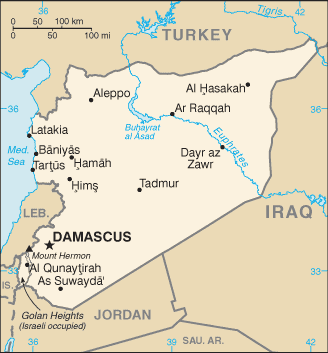While it took a bit longer to get them on board, Syrian rebels have ultimately agreed to participate in the new US-Russia negotiated ceasefire, scheduled to begin on Monday evening. The rebels continued to express doubts that it would amount to anything, and predicted Russia would be violating the deal despite having negotiated it in the first place.
 The Syrian government was a lot faster in accepting the deal, saying that they in particular liked the idea of establishing Castello Road, leading into Aleppo, a “demilitarized zone” so that humanitarian aid could reach civilians in all districts of the city.
The Syrian government was a lot faster in accepting the deal, saying that they in particular liked the idea of establishing Castello Road, leading into Aleppo, a “demilitarized zone” so that humanitarian aid could reach civilians in all districts of the city.
How well that’s going to work is also anyone’s guess, as like the February ceasefire, this one also explicitly excludes both ISIS and the Nusra Front. Nusra controls half of Aleppo, and has substantial forces in the surrounding area. They also have no real incentive to stick by the demilitarized zone if they think they can capture the road for themselves.
A big problem the last time around was that Nusra, while being excluded from the ceasefire, was also embedded with a lot of rebels meant to be included in it, causing confusion. US Ambassador Michael Ratney warned the rebels involved in the ceasefire of “dire consequences” if they don’t stay away from Nusra. Under this deal, the US and Russia will decide when Nusra is present and when they are not in a group of rebels.
A lot of the rebel doubts about the ceasefire are the same as they were the last time, centering on general distrust of the government and Russia. Secretary of State John Kerry echoed those concerns while he was announcing the deal, and by and large this seems just to be an effort to set up the talking points for if the plan fails.
Turkey’s addition to the situation in Syria, having invaded last month, also adds some complexity to the new ceasefire, though they too endorsed the deal. Since they’ve insisted in the past they don’t recognize any difference between ISIS and the Kurds, however, it is unclear if Turkey will feel itself at all constrained by the deal.


